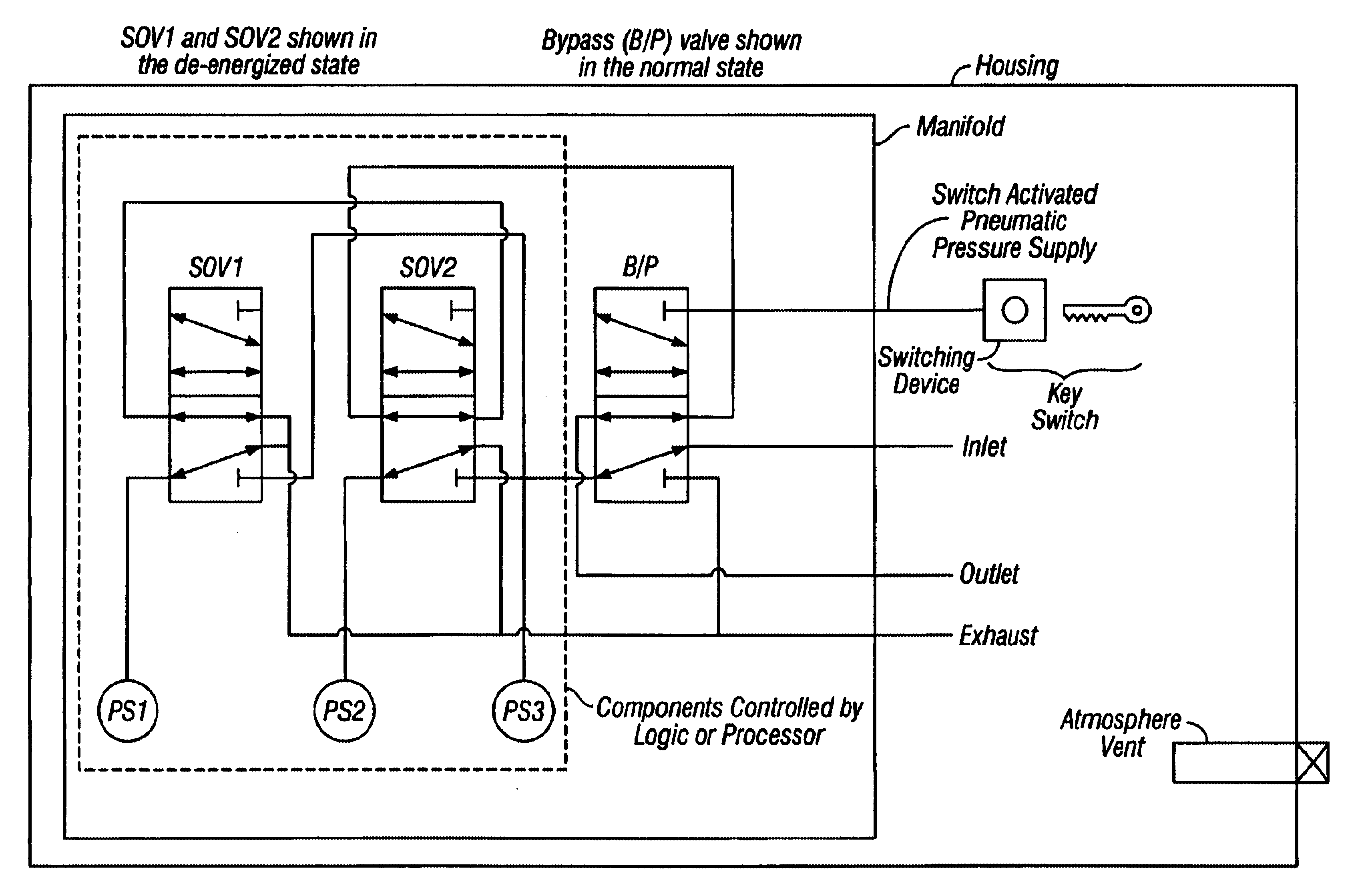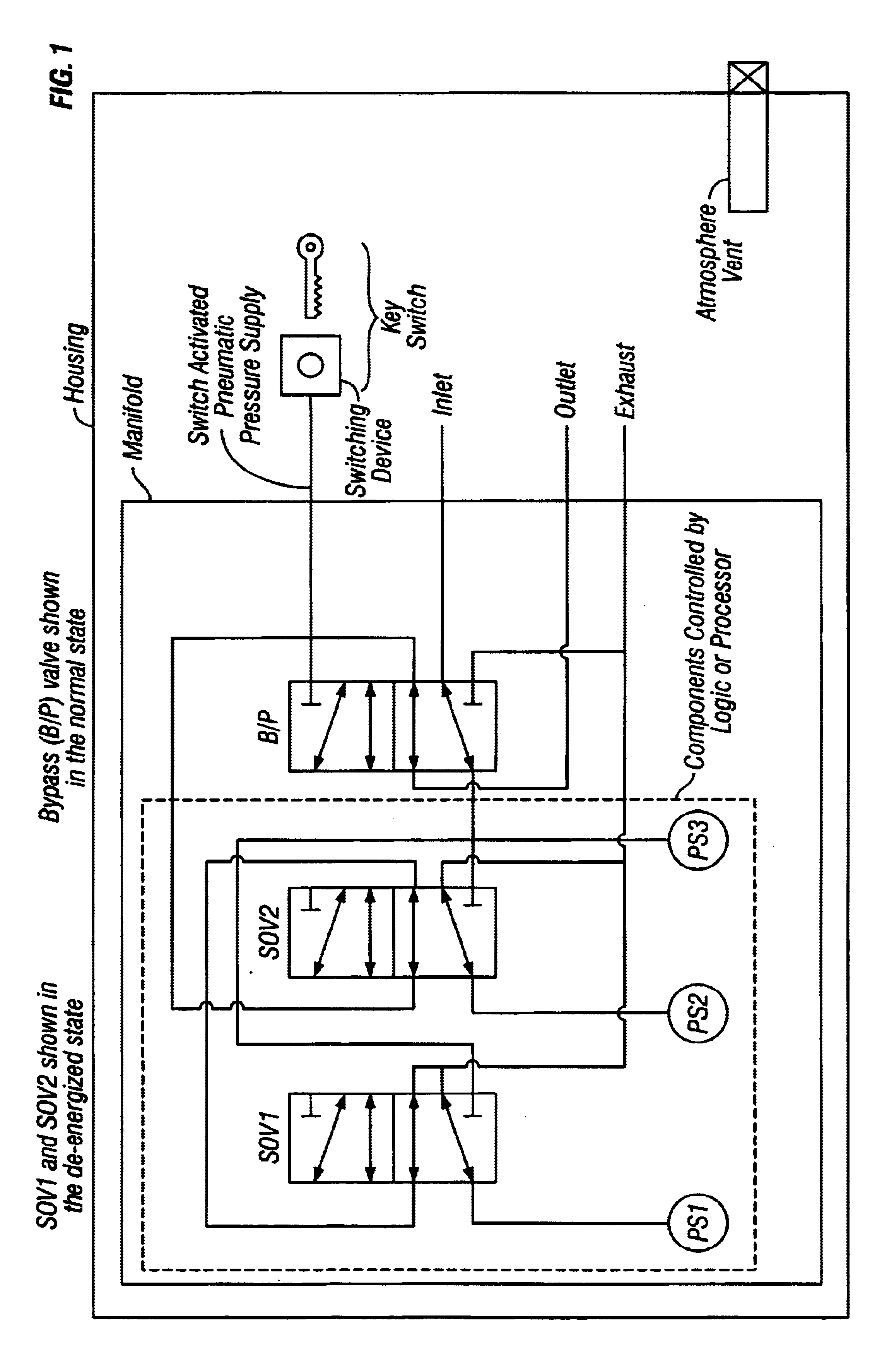Variable function voting solenoid-operated valve apparatus and testing method therefor
a solenoid-operated valve, variable function technology, applied in the direction of ignition automatic control, electric controllers, instruments, etc., can solve the problems of false initiation of safety action, limited overall safety availability performance of 1 out of 1 solenoid-operated valves, and configurations that can achieve only relatively low plant system reliability, and achieve high diagnostics. high, high safety availability
- Summary
- Abstract
- Description
- Claims
- Application Information
AI Technical Summary
Benefits of technology
Problems solved by technology
Method used
Image
Examples
Embodiment Construction
is intended primarily for illustrative purposes, and is not intended to include all possible aspects of the present invention. Moreover, while the invention has been shown and described with respect to an exemplary embodiment, those of skill in the pertinent arts should appreciate that the foregoing detailed description, and various other modifications, omissions and additions, so long as in the general form and detail thereof, may be made without departing from either the spirit or scope of the present invention. Having thus described the invention,
PUM
 Login to View More
Login to View More Abstract
Description
Claims
Application Information
 Login to View More
Login to View More - R&D
- Intellectual Property
- Life Sciences
- Materials
- Tech Scout
- Unparalleled Data Quality
- Higher Quality Content
- 60% Fewer Hallucinations
Browse by: Latest US Patents, China's latest patents, Technical Efficacy Thesaurus, Application Domain, Technology Topic, Popular Technical Reports.
© 2025 PatSnap. All rights reserved.Legal|Privacy policy|Modern Slavery Act Transparency Statement|Sitemap|About US| Contact US: help@patsnap.com



